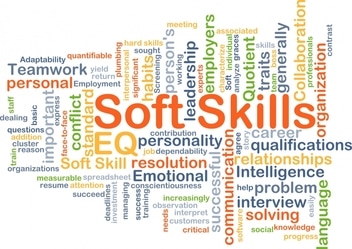Pathways to the future of Work

Pathways to the Future of Work
Change has always been a constant in the world of work, however automation, globalisation and flexibility has led to unprecedented levels. Technological advancement has made us part of an increasingly global economy where geography no longer matters as long as workers have a computer and an internet connection.
According to the Foundation for Young Australians, the number of young people in casual full-time employment has more than doubled since 1992 and almost one in five are juggling multiple jobs to work full-time hours.
The combination of these factors means that a 15-year-old may need to be able to negotiate an average of 17 jobs over five careers in their lifetime.
So how do we prepare young Australians for the future?
By partnering with schools and the community we aim to help young people build a portfolio of hard and soft skills.
’Hard’ skills are the technical skills required to undertake a particular role in the work place – for example a construction worker needs to know the fundamentals of building, while ‘soft’ skills are transferable skills that workers can use in all workplaces, such as problem solving.
Increasingly employers are looking for a set of generic skills on top of those related to a specific field.
The World Economic Forum has identified six ‘soft’ skills that all workers will need to possess if they are to be successful in the future:
- creativity,
- emotional intelligence,
- critical thinking,
- active learning with a growth mindset,
- judgement and decision making, and
- interpersonal communication skills.
Vocational Education and Training (VET) can help students develop both hard and soft skills, preparing them for the future of work.

